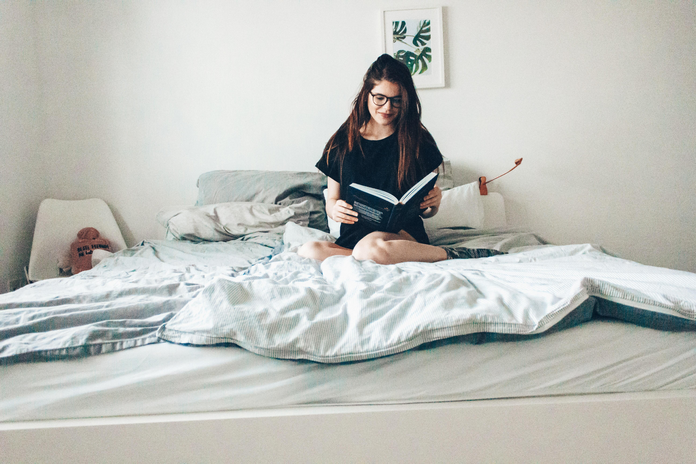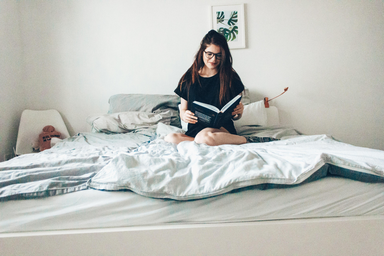If a pandemic and a year of remote college have taught me anything, it’s that self-care is imperative for survival. But when there seems to be no clear line between working and relaxing, when there are no real breaks or periods of rest, it has felt harder than ever to find ways to take care of myself.
In the early days of lockdown, I made an effort to find my little joys among monotony because I knew it’s what I needed to stay sane. I took walks, indulged in take-out every Friday night, and ordered clothes online, all in the name of self-care. But it was never enough to help me grapple with the stress and loneliness of isolation.

I wasn’t alone in this feeling. According to a study conducted by Healio, 80% of Americans intended to be more mindful about practicing self-care when the pandemic hit. Despite the intention, nearly 50% of the surveyed individuals reported that they struggled to find ways to benefit their physical, mental, and spiritual well-being during the pandemic. When I realized so many others felt lost when it came to maintaining their overall health this past year, I stepped back and asked myself, “what is self-care, really?”
Upon some reflection, I realized that our current conception of self-care is too closely linked with consumption and escapism. For many of us, self-care looks like buying a product that will make us feel pretty or watching a movie to get out of the real world for 2 hours but is that really benefitting our physical, mental, and spiritual health? I’d have to say no. These days our wellbeing has become so easily commodified(“self-care subscription box” is quite literally one of the first results when you search the phrase “self-care.”) But you can’t purchase physical wellness or positive mental health. Sure, it’s important to treat yourself at times but this kind of indulgence is a slippery slope to consumerism and avoidance.

I’ve learned that in order to protect my health and happiness I need to practice self-care intentionally. Acting intentionally is all about taking agency over your well-being. To be intentional is to actively check in with yourself physically, socially, emotionally, and spiritually to make sure all your needs are met. In all honesty, it can be work at ties. Acting intentionally goes beyond fleeting moments of relaxation and constantly adapts to whatever challenges you may face. Sometimes intentional self-care means staying up until one a.m to meet a deadline I’ve set for myself to avoid stress later on. But other times, self-care can be logging off early because I know I need the sleep. The goal is to find the balance between what I can do, what I need to do, and what I want to do.
When I aim to act intentionally I ask myself “How can I honor myself right now and down the line?” It’s not always easy to make that choice but what matters is that I am keeping my true health and happiness in mind.



